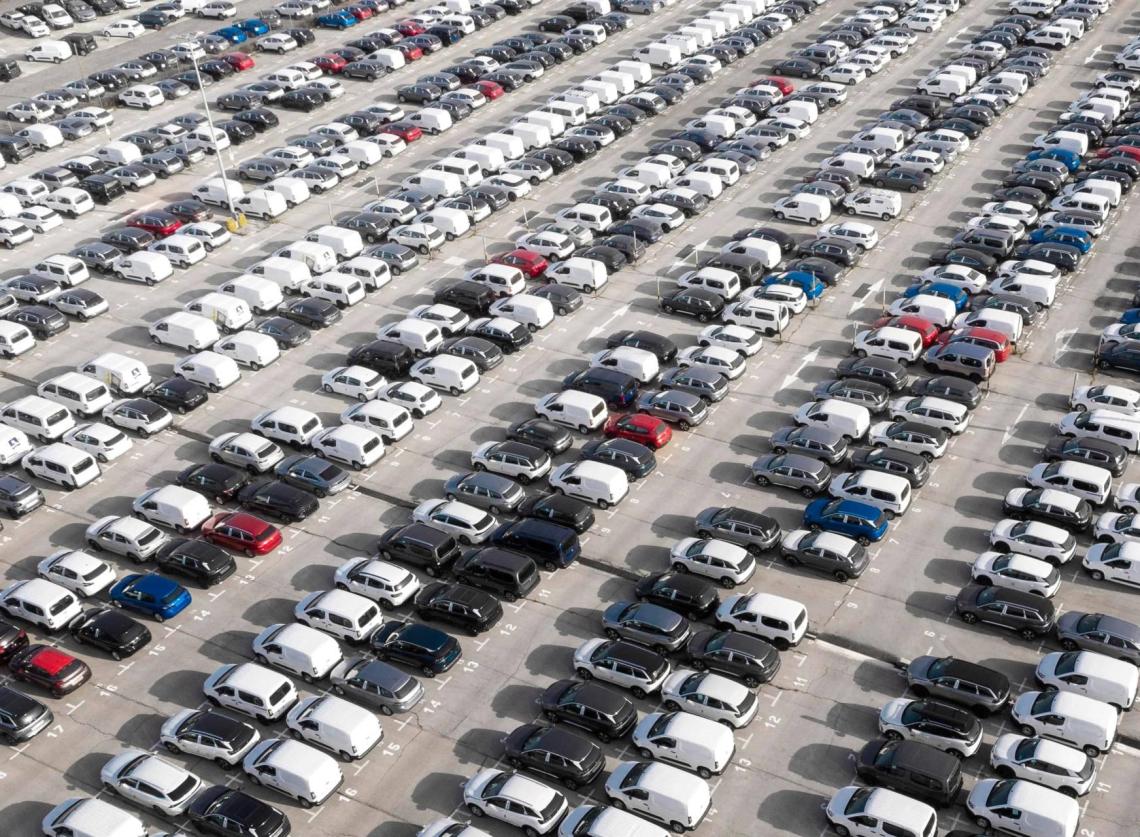The Belgian used car market has evolved into a dynamic and competitive segment within the automotive industry. This market has grown substantially in recent years, driven by several factors, including a growing focus on sustainability and the rise of electric vehicles (EVs). Let's explore an overview of the current Belgian used car market landscape.
Market Size and Growth
Belgium’s used car market has an important place in Europe, reflecting the country’s strong automotive sector.
In 2023, 689 170 used vehicles were sold in Belgium. The market saw significant growth, especially after the COVID-19 pandemic. This caused supply chain disruptions that limited the availability of new vehicles and pushed more buyers towards second-hand cars. Since then, the Belgian used car market is growing steadily with an increase of 7.2% compared to 2022.
In addition, the leasing market is highly developed in Belgium due to different fiscality reasons and government incentives.
As a result, the used car sector has become a key pillar in Belgium's broader automotive industry.
Types of vehicles composing the market
The regional diversity within Belgium creates a more complete overall offer. Indeed, the hilly terrain of Wallonia requires stronger and more robust vehicles whereas Brussels inhabitants are in need of smaller vehicles.
More than half (54.5%) of the personal market consists of petrol used cars. The rest is largely composed of diesel vehicles (35.6%). Second-hand EVs represent only 2% of the market when hybrids represent 7.7%. In addition, this market has his fair share of automatic vehicles, increasing the diversity within models.

Some vehicle configurations are specific for this market. It means that, as a used car dealer, you can import from Belgium vehicles which could answer new needs.
As a dealer looking to import from Belgium, know that Volkswagen is the most represented brand on the personal market. Indeed, the Golf and the Polo are the two most sold vehicles in 2023. The next brands are, in order, BMW, Mercedes, Opel and Peugeot.
Concerning end-of-lease vehicles at Arval, you will find many well-equipped premium brands but also much more PHEVs and BEVs than on the personal market. Indeed, government incentives are more important in this specific sector.
Note also that Belgium uses Kilowatt (kW) to calculate power size.
Electrified vehicles incentives
The Belgian government's aggressive strategy to promote vehicle fleet electrification and phase out petrol and diesel cars aims to significantly reduce carbon emissions, which is expected to boost demand for used cars across the country during the forecast period.
The Brussels government announced in 2022 its plan to completely ban diesel vehicles by 2030, extending the ban to petrol cars by 2035. The gradual tightening of Brussels' Low Emission Zone (LEZ) regulations will support this transition. Currently, electrified vehicles make up around 9.5% of the overall used car market. A figure that is growing because of various incentives and the pressure of the impending ban.
Additionally, cities like Brussels, Antwerp, and Ghent are increasingly implementing strict entry restrictions on ICE vehicles. Buyers of EVs also benefit from reduced taxes, including lower value-added tax (VAT) on electricity consumption.
In regions like Brussels and Wallonia, those purchasing battery electric vehicles (BEVs) or fuel cell electric vehicles (FCEVs) can take advantage of lower tax rates on acquisition and ownership costs.
As incentives for fleet electrification are strong, companies already made the shift to PHEVs and more recently to EVs. This implies that the share of these vehicles will increase in end-of-lease sales.
These incentives will increase the number of electrified vehicles in the used car market. This will create more opportunities for car dealers who focus on EVs.
Challenges Facing the Used Car Market

Like other parts of Europe, global supply chain disruptions have affected the Belgian used car market. They have slowed the production of new vehicles, limiting their availability and pushing more consumers towards second-hand options.
While this has boosted demand, it has also created a supply crunch in the used car market, driving up prices.
The strict emissions regulations recently introduced and especially LEZs in cities pose challenges of older diesel vehicles. Indeed, all noncompliant used vehicles become less attractive for Belgian consumers. If you are looking for older used vehicles or diesel vehicles, importing from Belgium could be a good solution.
Conclusion
The Belgian used car market is evolving, shaped by consumer trends towards sustainability and affordability. While challenges like supply constraints and strict emissions regulations persist, the market remains an important pillar in the country's automotive sector and a viable option for a growing number of consumers.
Second-hand car market grew by 7.2% in 2023 - The Brussels Times


